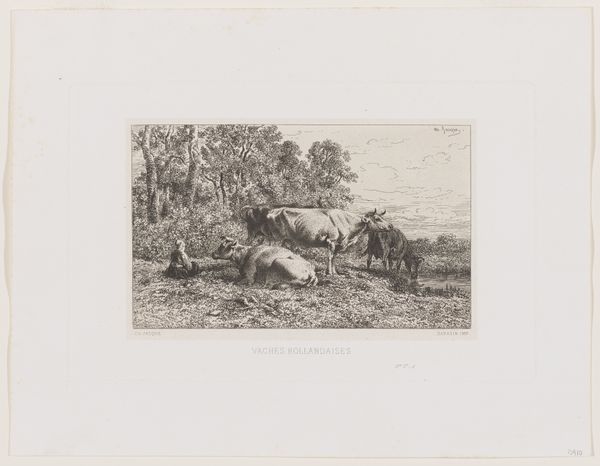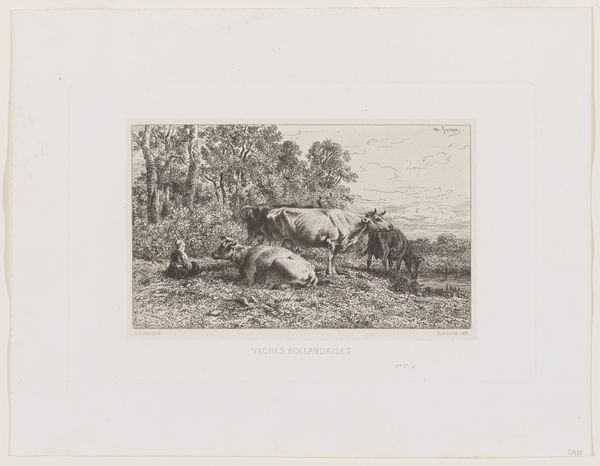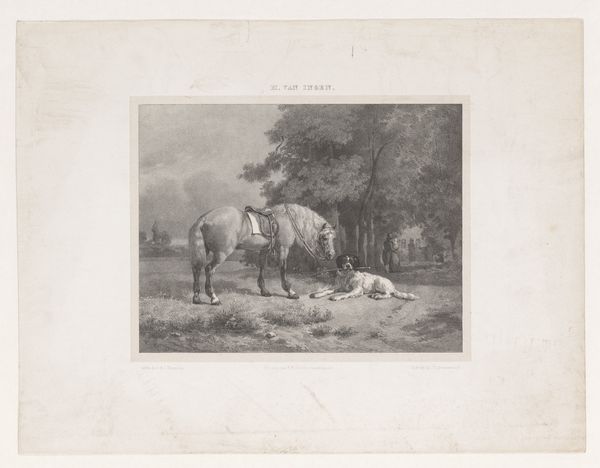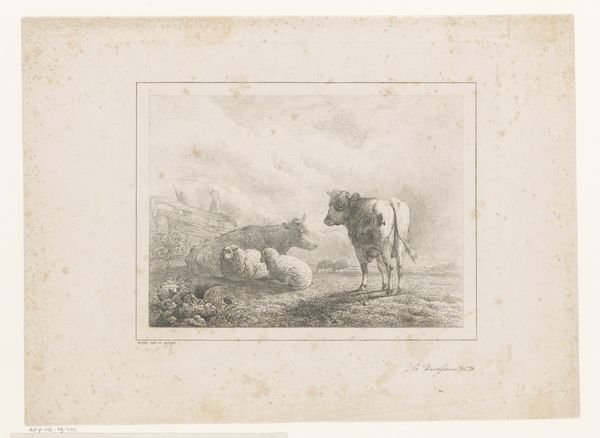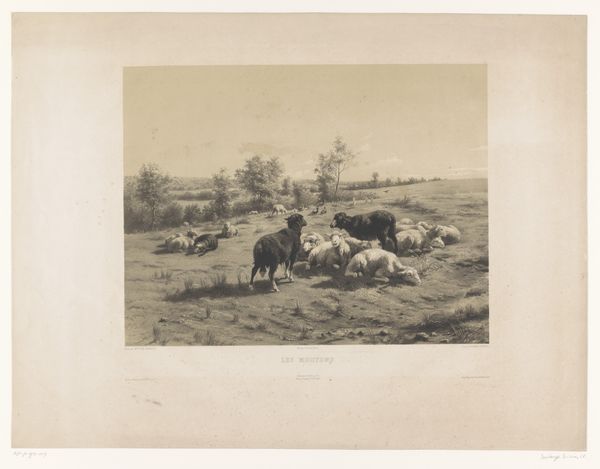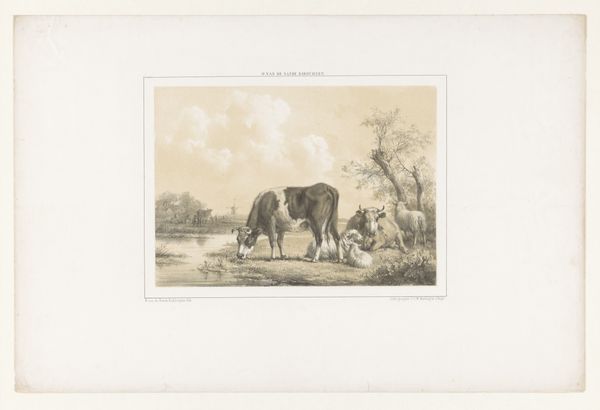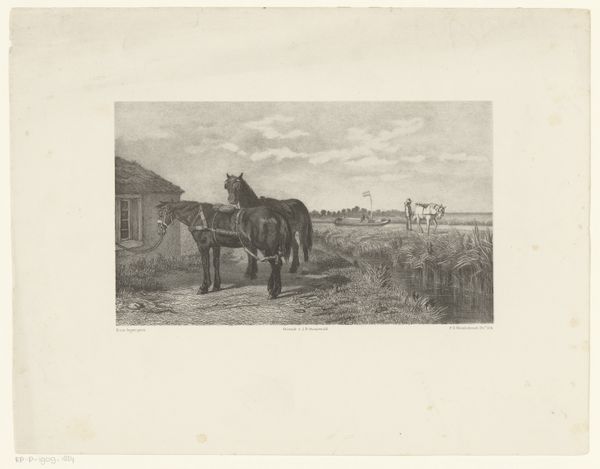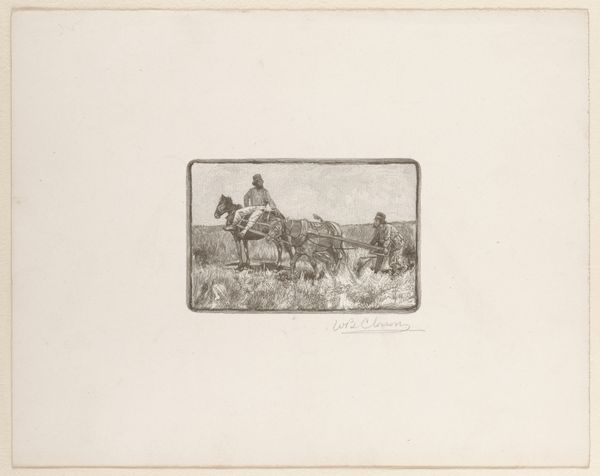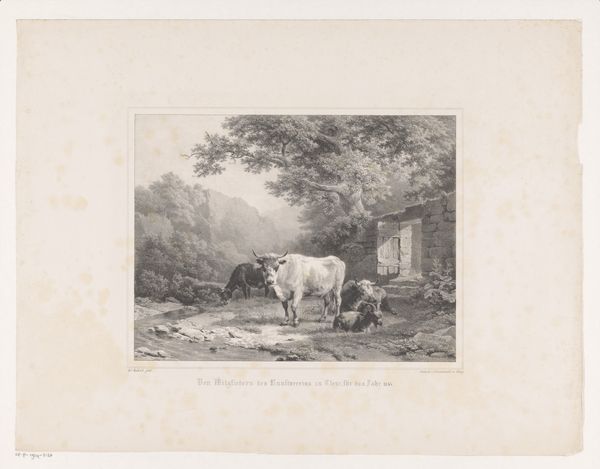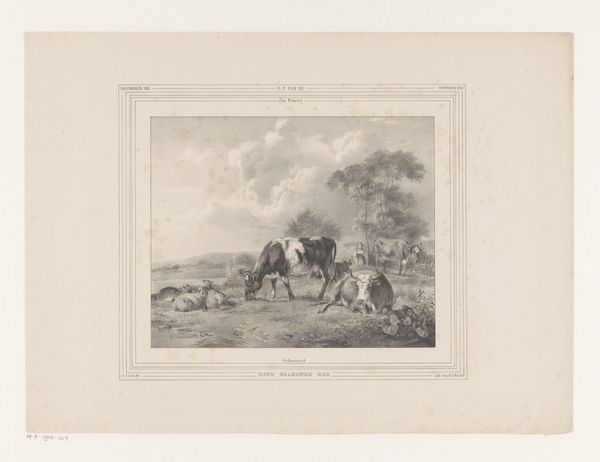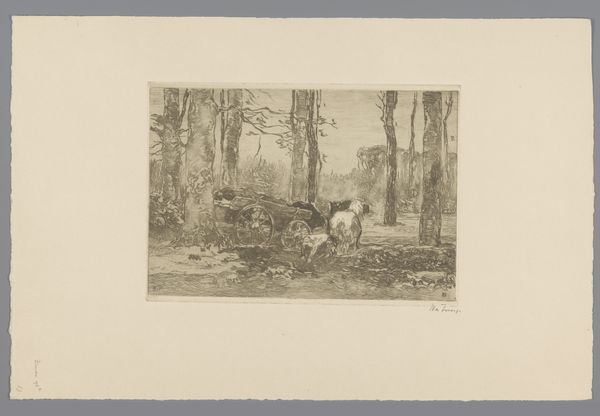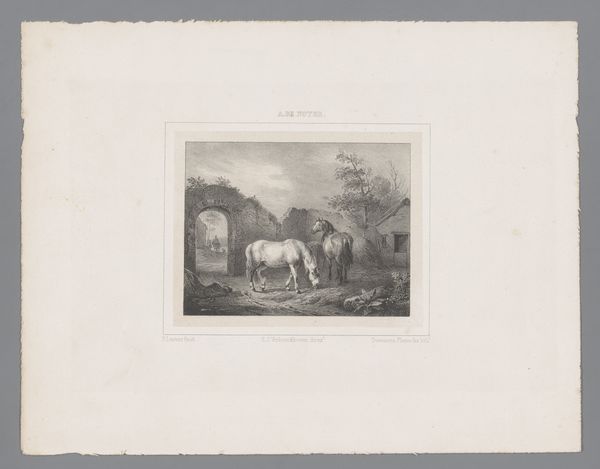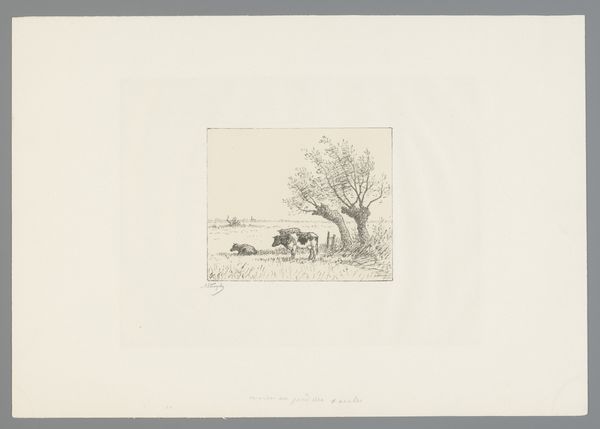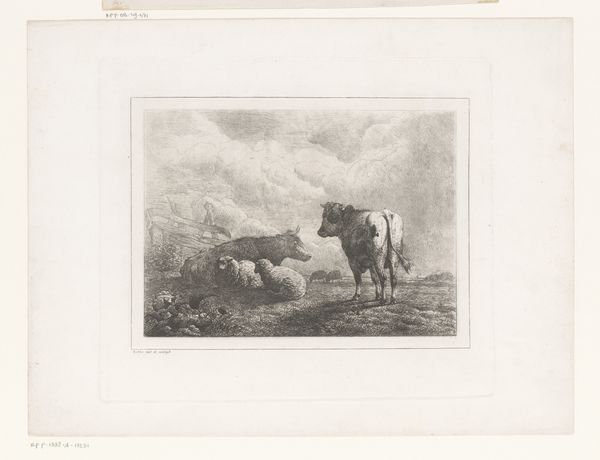
print, etching
#
pencil drawn
#
photo of handprinted image
#
natural shape and form
#
light pencil work
#
natural tone
# print
#
white dominant colour
#
etching
#
pencil sketch
#
france
#
tonal art
#
remaining negative space
#
watercolor
Dimensions: 4 1/4 × 7 1/8 in. (10.8 × 18.1 cm) (image)9 7/16 × 12 3/16 in. (23.97 × 30.96 cm) (sheet)
Copyright: Public Domain
Charles-Émile Jacque created this etching, titled "Dutch Cows," sometime in the mid-19th century. The print depicts a pastoral scene in which a young peasant girl tends to a small herd of cattle. Jacque was part of a generation of French artists who embraced rural subject matter, finding in the countryside a sense of authentic Frenchness. But images of peasants and farm animals were also deeply tied to debates about industrialization, class, and the changing social order of France in the wake of the Revolution. Representations of country life were particularly popular with urban elites who had grown alienated from the land. Prints like these, therefore, reflect the complex social and economic transformations of 19th-century France. To better understand this artwork, we might ask how it idealizes rural labor, or what role institutions like the French Academy played in shaping artists’ vision of the countryside.
Comments
No comments
Be the first to comment and join the conversation on the ultimate creative platform.
